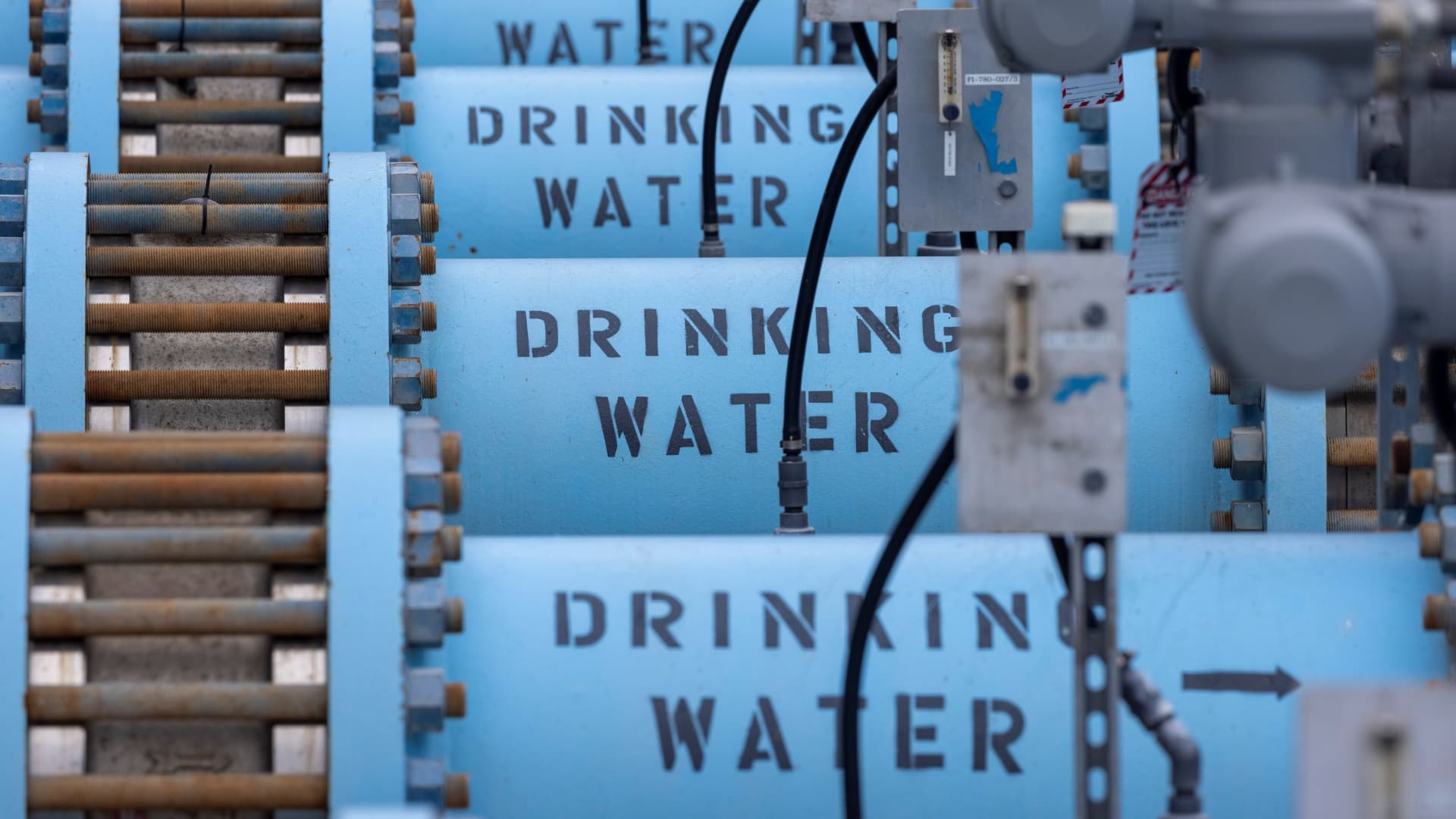
How to invest in one of the hottest commodities of the next three decades: water
- Select a language for the TTS:
- UK English Female
- UK English Male
- US English Female
- US English Male
- Australian Female
- Australian Male
- Language selected: (auto detect) - EN
Play all audios:

In the coming decades water inequality and scarcity will become an increasingly large problem as populations grow and climate changes shift supply and demand patterns. The "changing
tides," as Morgan Stanley puts it, offer opportunities for investors in the form of data management companies helping utilities better manage the water they provide, for example, or
vertical farming companies that help agricultural operations reduce their water usage. These types of companies will become increasingly important as water prices rise. "From an
investment perspective, we think that heavily water-intensive companies should be prepared for potentially more volatile water pricing over time," Morgan Stanley said in a note report
dated Feb. 9. The firm said that water usage has risen six-fold in the last century. But 2 billion people still lack access to safe drinking water, while 3.6 billion people don't have
safely managed sanitation. And water demand is forecast to rise by roughly 30% by 2050. "Tension over access to sufficient water by industry, agriculture and municipalities could lead
to increased scrutiny, greater regulation, and ultimately higher costs," the firm said, which is where companies using technological innovations to cut usage come in. Water pricing
typically involves regulators, which has in some cases led to underinvestment in infrastructure. Morgan Stanley added that water is one of three key sustainability challenges, alongside
halting climate change and feeding 10 billion people. The three are intrinsically linked, since agriculture accounts for about 70% of global water usage. And climate change will alter water
patterns, meaning that some places will experience more floods, while others will experience more droughts. Morgan Stanley noted that about $850 billion is spent every year on providing and
maintaining water resources, but that this isn't enough to meet global needs. Within that over-arching figure, about $300 billion is for capital expenditure, which the firm said is
about one third of what's spent on electricity networks. The energy transition will present its own types of challenges, with decarbonization technologies like hydrogen requiring water.
Ultimately, industries that rely on water will have to become smarter about their usage. "Energy producers and utilities are by far the most water-intensive companies...potential
supply disruption and possible long-term regulation and price inflation means water-intensive companies need to become more water efficient." How to invest Morgan Stanley defined the
investable universe into five categories of so-called "solution stocks," or companies that are tackling specific areas of the water ecosystem: Desalination Smart Irrigation Crop
Science Metering & Digital Solutions Vertical Farming First up is desalination, which provides a solution for freshwater shortages. The firm noted that just 3% of all water on earth is
suitable for drinking. "The ever-growing needs of industry and population mean that we are on the cusp of running out of conventional supply," Morgan Stanley said. "It is one
of the most climate-change resilient sources of water, independent of changes in weather patterns, droughts and rising temperatures," the firm said of oceans and seas. But there are
tradeoffs, including that desalination is expensive and the ecological impact remains unclear. European companies dominate the market, and Morgan Stanley pointed to Veolia , Suez and Acciona
as key players in the space. Smart irrigation is another area of focus. Technological advancements are vital in order to square growing demand for food with the finite land and water
available. Innovative practices include micro-irrigation, which Morgan Stanley pegs rising $10 billion from 2018's levels to a market opportunity of $17 billion by 2025.
Micro-irrigation can lead to reduced water loss, improved crop efficiency and lower labor intensity. One of the companies Morgan Stanley pointed to is Agco , which is a manufacturer and
distributor of agricultural equipment. The company sells precision agriculture projects, among other things, which helps to lower water consumption for agricultural operations. Omaha,
Nebraska-based Valmont Industries is another company that makes specialized equipment for precision agriculture. Crop science also plays a role, and Morgan Stanley said innovation in seeds
has driven "material yield enhancements over the last 30 years for both conventional and genetically modified (GM) seeds." Modifications include crops that can withstand flooding,
or those that can be drought resistant. Companies involved in this arena include Corteva and Germany-based Bayer . As water consumptions becomes a bigger point of focus, municipalities and
utilities will need to prioritize technologies that increase efficiency. Metering and digital solutions can help on this front. Data management from sophisticated metering allows utilities
to better understand demand patterns and implement more accurate billing. Morgan Stanley highlighted Badger Meter , Itron , Roper Technologies and Xylem as companies helping utilities and
other industries with data management. Vertical farming is another important technological advancement since it can enable water savings of between 80% and 95% versus traditional
agriculture, according to Morgan Stanley. "Vertical Farming is a resource-efficient approach to growing certain types of food produce. It requires a controlled, indoor environment with
crops typically grown on a series of stacked layers," the firm said. Then there's companies with general exposure to water infrastructure and solutions, including American Water
Works , California Water Service , Ecolab and Danaher . Morgan Stanley also searched through the sustainable funds landscape looking for the most popular stocks in water-focused funds. The
firm found that American Water Works, Xylem and Veolia are the most commonly held stocks, owned by 66%, 66%, and 62% of funds, respectively. - CNBC's Michael Bloom contributed
reporting.
